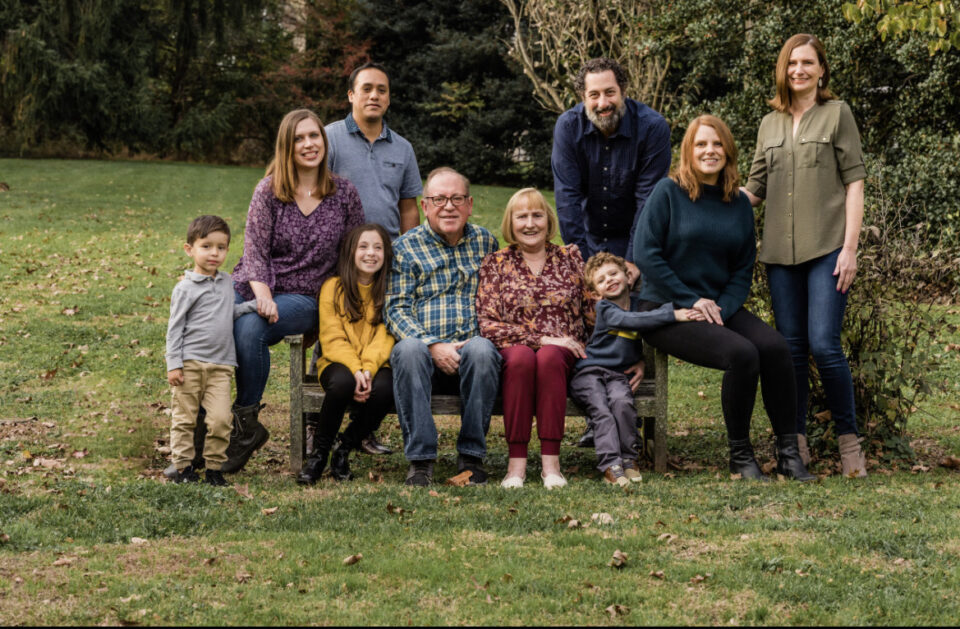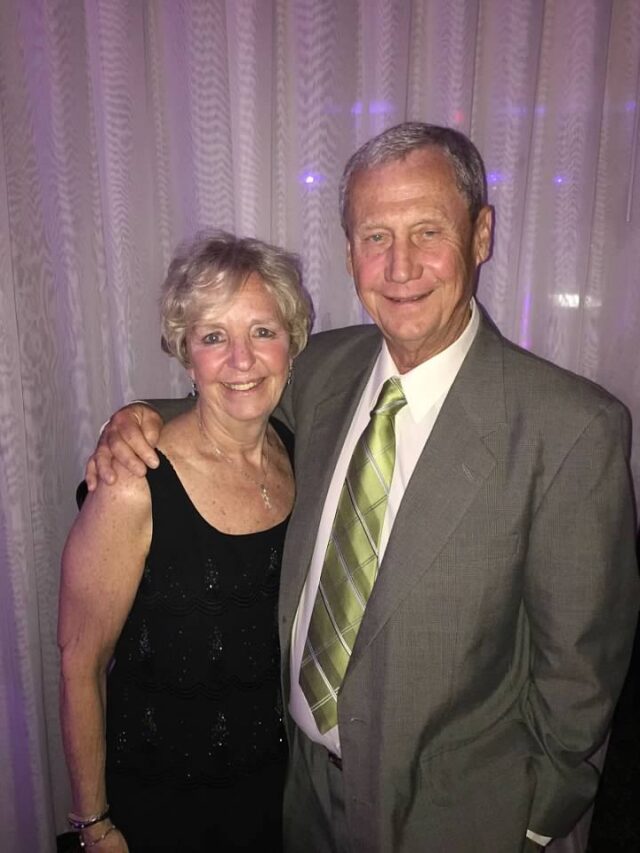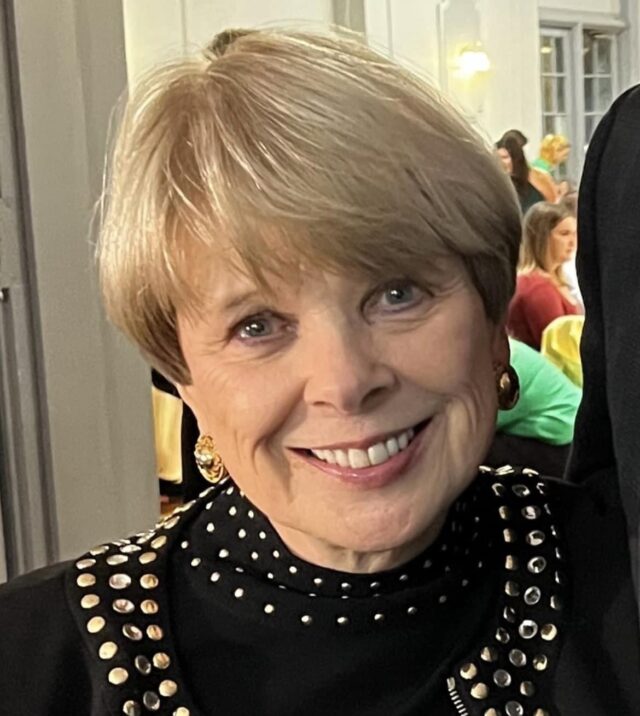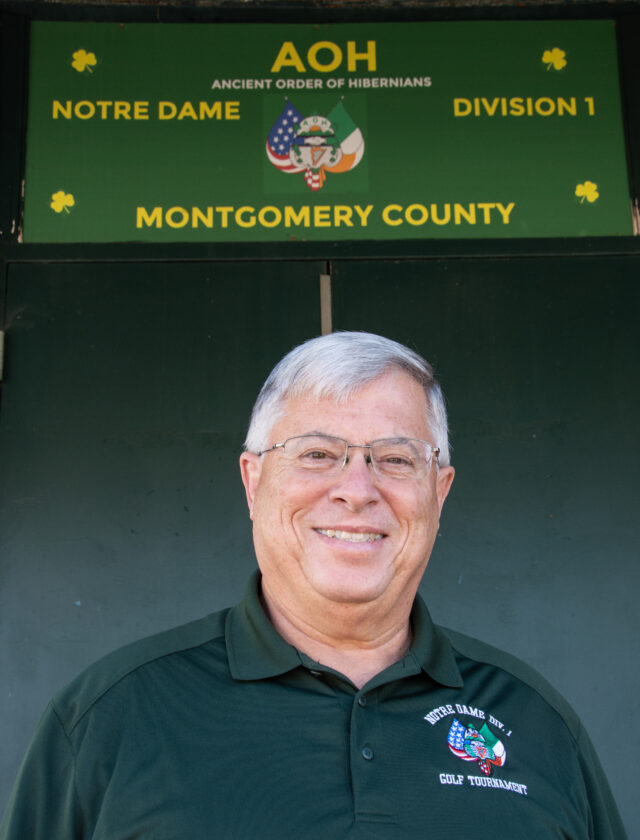By Lori Lander Murphy
When the Conaghans are welcomed into the Delaware Valley Irish Hall of Fame as 2023 inductees, it will be both as a family and as individuals who have devoted their lives to their Irish community.
Sarah, Karen and Mary Conaghan consider themselves exceedingly fortunate to have grown up as the daughters of Tom and Mary Conaghan. They couldn’t help but be influenced by the parents’ who met at a dance hall in Killybegs, County Donegal, in 1972 and continued their romance after both arrived separately in Philadelphia. They saw firsthand how Tom and Mary worked hard and created a new life here while maintaining close ties to family and friends in Ireland.
“I found it inspirational that my dad had such passion for his homeland and never forgot where he came from,” Sarah explained. “He still cared about what was going on over there, especially during the 80’s and 90’s with the fight for freedom and all the conflict that was going on. It was motivating and inspirational to have a father who cared so much about issues, who didn’t just sit back and ignore them. Because he could have.”
Karen seconds that. “Another thing I would add is that our parents, both of our parents, always were working so hard at their jobs and on top of that doing so much for the Irish community. I think that made a very deep impact on us that it’s important, in whatever form it takes, to be connected to your community and to do things that contribute to that community.”
It’s no surprise then that it was Mary and her daughters who established the Philadelphia Rose of Tralee Center in 2002 partly as a way to connect the young women of Irish Philadelphia to their larger shared community. Summers spent in Ireland had introduced the girls to the festival and the empowering opportunities it presented to the women who were there to represent their cities. They believed Philadelphia had young ladies who deserved a place on that world stage, so Mary Conaghan went to the conference for the North American Centers and lobbied for Philadelphia to be a part of the festival.
“Mom attended the International Rose Center meeting in Los Angeles in 2001 to get more information and meet the other representatives. She had a positive experience there and we moved forward with becoming an official Rose Center.”
The first year they had 14 girls who participated, and by 2007 they expanded to introduce the Rosebud and Rose Petal programs to include the participation of girls ages 5-17. Since then, 20 women have represented the city, including 2014’s International Rose, Maria Walsh, who is now a Minister of the European Parliament. Many of the young women who participated have remained active in the organization, and as the Conaghans pass the torch to the next generation, it’s continuing to move forward under the leadership of Colleen O’Riordan (2007), Brigid Gallagher (2016) and Tara Grandich (2017).
But before all of this, it was Tom who had led the charge when it came to advocating for change and forward movement in the Irish community.
“It was a very different time,” Mary explained. “So many people suffered so much in the north of Ireland. Losing family members, and the discrimination that they faced in their daily lives.”
Born in Doorin, County Donegal, to Thomas and Frances McLaughlin Conaghan, Tom became aware of inequality in the north of Ireland at a young age. His father had traveled to Scotland for work on a regular basis, but in order to secure a reasonable pension, he was required to live and work there for a whole year. The family moved to Glasgow when Tom was nine, and that one year became 10.
“I’d seen the Civil Rights marches – we’d made trips back and forth from Glasgow to Donegal – and I’d seen some of the abuses that our Irish Nationalist Catholic people went through living in an orange state,” Tom described. “I’d begun to realize there was something very wrong with the six little counties right beside Donegal.”
Tom saw the discrimination and suffering in his own family. His mother’s cousin’s husband, Hugh McNern, had gone to work as a painter at the Harland & Wolff Shipyard in Belfast. The company only employed Protestant workers and Hugh was found dead on the job.
Several years later, Hugh’s daughters and Tom’s second cousins, Jennifer and Rosaleen, were in the Abercorn Cafe in Belfast when it was bombed.
The girls survived but they both lost their legs; Rosaleen lost an arm and an eye as well.
“Those kids used to come down to Donegal in the summertime and spend summers with their uncle, and we would hang out and play with them. After that happened, my mother left Glasgow to be with her cousin, and I went with her. We visited them in the Royal Victoria Hospital a week later and just to see them lying there with their faces all covered in shrapnel and scars, and looking at the outline of them in their beds I could see that their legs were gone.”
He had also witnessed the deployment of the British Army in 1969 to assist the Loyalist leadership curtail Nationalists who were protesting for civil rights. Protesters in Derry and Belfast were murdered.
When his family finally returned home to Donegal, Tom didn’t go with them. Instead, he was sponsored by his sister and arrived in Philadelphia on July 4, 1972. Tom became involved in the Irish Immigration Reform Movement and the local Philadelphia Gaelic Immigration Assistance Group who were lobbying for the passage of the Morrison Donnelly visas. In 1988, Tom was elected president of the Donegal Association, and in this position he advocated for the establishment of a Donegal Gaelic football team as well as Philadelphia’s participation in the Mary from Dungloe Festival.
“When I came to Philadelphia, I met a lot of people who were from six counties, whose families went through a lot of British Army and Orange prejudice. So I got involved with organizations that tried to turn the tide so our people would get equality and be treated as citizens. That went from there all the way up until I became president of the Delaware Valley Federation of Irish Societies in 1991. That’s when real change took place because we lobbied for change. And we were very good at it.”
During his tenure as President of the Federation in the 1990s, Tom made his strongest contributions to the fight for peace and justice in Ireland. Along with other organizations, the Federation worked for passage of the MacBride Fair Employment Principle. These principles would require American companies who invested their pension funds in the north of Ireland to comply by not funding any entities that discriminated against Catholics in jobs and housing. They also pushed for the U.S. to grant visas to Irish Nationalist Republicans so they could present their side of the story in testimonies over here. After President Clinton was elected in 1992, he went ahead and granted Gerry Adams a visa; the Federation welcomed Adams on his 1994 and 1995 visits, and huge crowds turned out to see him in Philadelphia and specifically at the Irish Center.
In 1995, Tom was invited to attend the White House Conference in Trade and Employment, held in the north of Ireland. The conference adopted many of the MacBride points, and had them incorporated into the Good Friday Agreement. As part of a small working group representing Irish America, Tom was invited to the West Wing of the White House multiple times to advise President Clinton on his initiatives in the peace negotiations. This led to the appointment of Senator George Mitchell and culminated in the Good Friday Agreement in 1998.
“Prior to Clinton running for President, we had been lobbying for Irish Republicans to get visas so they could come here and tell their story because all you always heard was the British story. You had British ministers coming to New York and to Washington, D.C. telling only their side of things. Finally, in Philadelphia, we held an inquiry about police abuse, Royal Ulster Constabulary abuse, and it was attended by the kids that had fled Northern Ireland and lived here in Philly. They gave testimony as to how they were treated. We had human rights lawyers who came down from New York that took the testimony. That was 1999, after the Good Friday Agreement, and RUC reform hadn’t been part of it. Everything had to be reformed.
“I remember going up and down on the train from Philly to New York, or to Washington, to meet with different people, in small group settings with politicians. And I remember one day coming back and thinking, I wonder will anyone ever be thankful for it. And you have those moments of thoughts. But we did it. A lot of people helped get it done. Sometimes, you know, you have to create a little bit of noise if there’s something you’re working on that needs support. And we did that.”
Tom continued to attend meetings at the White House until 2000 in order to work towards the reform of the RUC. From the 1999 testimony, the panel of human rights experts created a document that was submitted to the Patten Commission; many of its recommendations were included in the Commission’s final report. The Federation stepped aside when the Police Services of Northern Ireland (PSNI) was established and a police force representing both communities was set up.
“For the most part, the recommendations we gave were included. Which include people from both communities being able to join a regular police force, not a militia that was out to get the Irish.”
With much of the Federation’s work accomplished, Tom turned towards the establishment of the Philadelphia Immigration Resource Center/Irish Immigration Center of Philadelphia (currently known as the Irish Diaspora Center) in October of 1998. There, much needed social services such as legal counseling on immigration, education and employment were set up to provide assistance.
“There was basically a huge communication discrepancy, there was a whole bunch of new, young Irish here in Philly at that time. A lot of them came, and the ones that missed the Donnelly Morrison visas, there were basically illegal after 1992. They were still coming in and overstaying the 90 days. People said, ‘Well, they shouldn’t have done that.’ Well, okay, but you know what? They did it. They had no choice depending on their circumstances. There were some problems, some arrests.”
After a daytime raid on the Irish Coffee Shop in Upper Darby, where immigration officers were called out, everyone was arrested including those still legally on their 90-day visas. No one knew where those kids had been taken.
“We didn’t know any of this had happened. And I felt this was something wrong that shouldn’t have happened. Especially the girl from near my hometown who was deported in the same clothes she was wearing almost two weeks later. We needed communication because we figured this was going to happen again. There’s going to be issues, there’s going to be problems. And we asked folks, are you interested in helping people, in a non-judgmental way, regardless of what you think or not think of their behavior.”
The Irish Immigration Center was able to find services that people didn’t even know were out there, and it grew from there. Sometimes it meant making difficult phone calls to families back in Ireland, letting them know that their child was in trouble, or worse. Sometimes that included Tom and Mary shopping for clothes so for people they’d never met who were in custody, so they’d have a nice outfit to go home in.
“I’d go into the store thinking, would he like this, is this something he would wear?” Mary remembered. “I’d loved to have been at the airport in Ireland when some of these people got home! I often wondered, what did they think of these outfits. But they knew we cared. We cared enough to get them something.”
Tom added, “We got all kinds of letters and things from people over the years – we kept in touch – saying ‘We’d have loved to have been able to stay, we loved America but this is our life now.’ They’ll give us a running narrative on how they’re doing. We do keep in contact and we see them when we go over there.”
“It’s nice,” Mary said. “You know that you’ve made a difference.”
With 2023 marking the 25th anniversary of the Good Friday Agreement, Tom is looking forward and hopeful that there will be a border poll for a vote on the reunification of Ireland. But that will be a job for this generation, as he explains. “I helped start it up and set it free. I don’t believe in embedding myself in something forever, you have to move on to the next thing. We saved lives and moved forward into our freedom. And it’s a freedom not just for us who are living, it’s a freedom for all those who suffered and who died. There has to be a justification for what happened to our people; the day we get our freedom, that’s our justification.”




